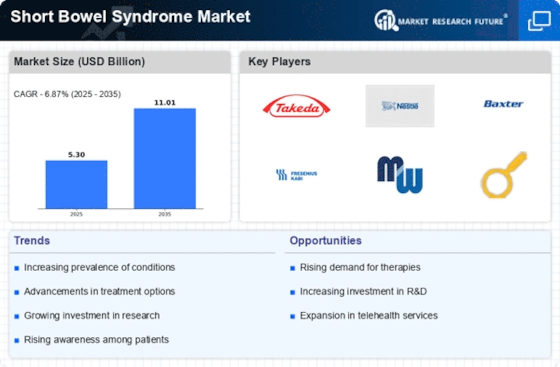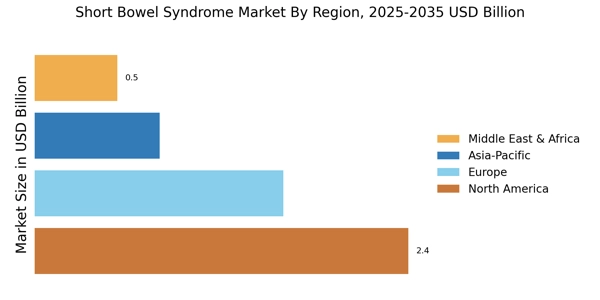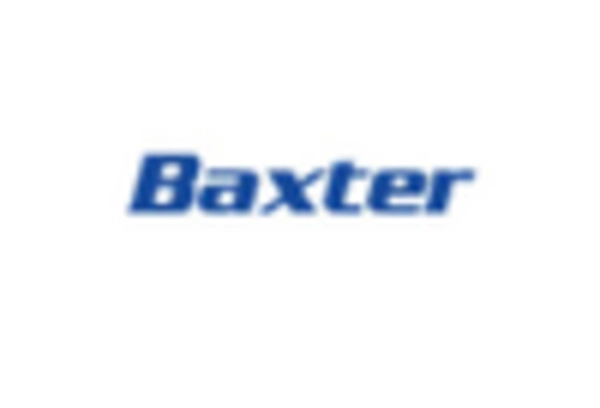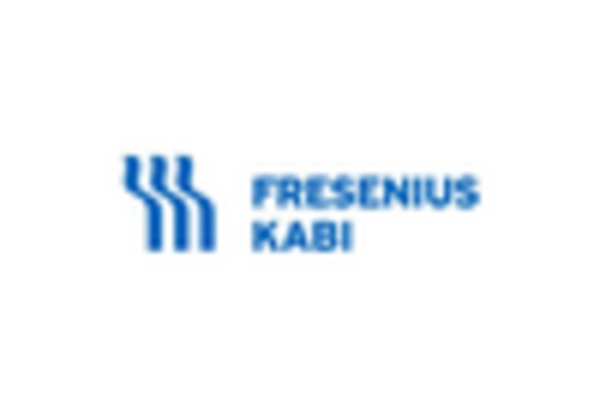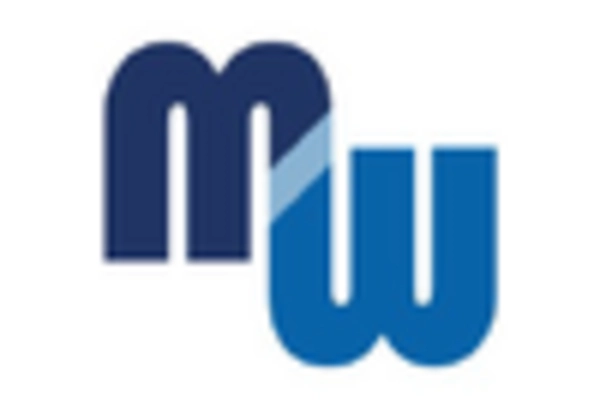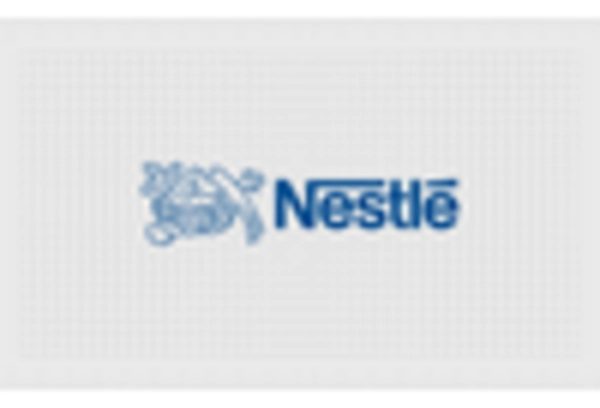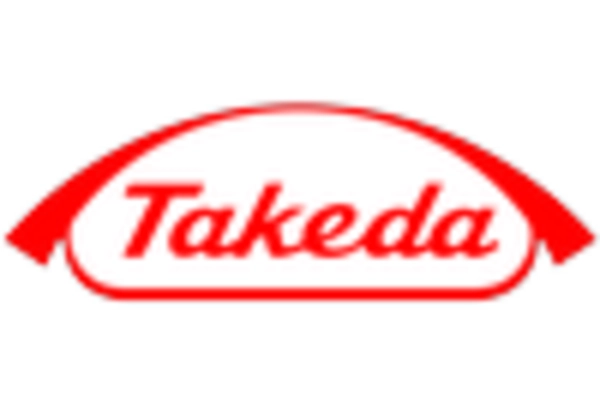Advancements in Medical Technology
The Short Bowel Syndrome Market is experiencing a notable transformation due to advancements in medical technology. Innovations in surgical techniques, such as minimally invasive procedures, have improved patient outcomes and reduced recovery times. Furthermore, the development of advanced imaging technologies allows for better diagnosis and management of the condition. These technological advancements are likely to enhance the efficacy of treatments, thereby increasing the demand for therapeutic options within the Short Bowel Syndrome Market. As a result, healthcare providers are more equipped to offer tailored solutions, which may lead to a rise in patient satisfaction and adherence to treatment protocols.
Enhanced Nutritional Support Solutions
Nutritional management is a cornerstone of treatment for patients with Short Bowel Syndrome Market, making enhanced nutritional support solutions a vital driver in the Short Bowel Syndrome Market. The development of specialized enteral nutrition products and supplements tailored for these patients is gaining traction. These products are designed to meet the unique dietary needs of individuals with compromised intestinal absorption. As awareness of the importance of nutrition in managing Short Bowel Syndrome Market grows, healthcare providers are increasingly recommending these solutions, which may lead to a surge in demand within the Short Bowel Syndrome Market.
Growing Incidence of Short Bowel Syndrome
The prevalence of Short Bowel Syndrome Market is on the rise, which is a critical driver for the Short Bowel Syndrome Market. Factors contributing to this increase include a higher incidence of conditions that necessitate bowel resections, such as Crohn's disease and cancer. According to recent estimates, the incidence of Short Bowel Syndrome Market is projected to affect approximately 2 to 5 individuals per 1,000,000 people annually. This growing patient population is likely to create a heightened demand for specialized treatments and nutritional support, thereby propelling the growth of the Short Bowel Syndrome Market.
Rising Awareness Among Healthcare Professionals
The Short Bowel Syndrome Market is benefiting from a rising awareness among healthcare professionals regarding the complexities of the condition. Educational initiatives and training programs aimed at physicians, dietitians, and nurses are becoming more prevalent. This increased awareness is likely to lead to earlier diagnosis and more effective management strategies for patients suffering from Short Bowel Syndrome Market. As healthcare providers become more knowledgeable about the syndrome, they are better equipped to offer comprehensive care, which may drive demand for specialized treatments and services within the Short Bowel Syndrome Market.
Increased Investment in Research and Development
Investment in research and development is a pivotal driver for the Short Bowel Syndrome Market. Pharmaceutical companies and research institutions are increasingly focusing on developing novel therapies and nutritional products aimed at managing Short Bowel Syndrome Market. This trend is evidenced by the rising number of clinical trials and studies aimed at understanding the underlying mechanisms of the syndrome and exploring innovative treatment options. The financial commitment to R&D is expected to yield new products that could significantly improve patient outcomes, thus stimulating growth within the Short Bowel Syndrome Market.


